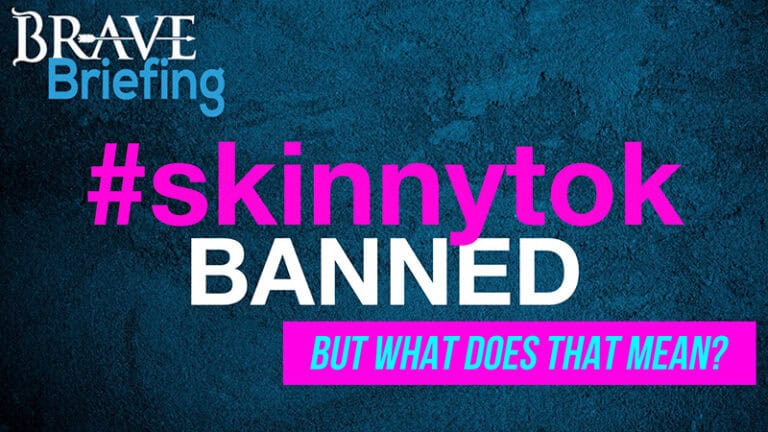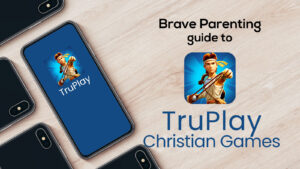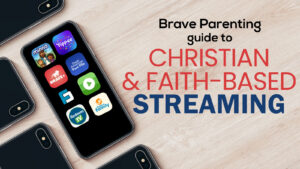*updated for 2019
Honesty and Social Media….do these two coexist?
By the most recent statistics, 76% of teens in the US are using social media. Similarly, 77% of adults are using social media.
If we are equal consumers, is it safe to assume we all use it the same? No way. We may represent an equal amount of accounts but our use is vastly different. The fact is this: social media isn’t a part of teens social life like it has for adults, but rather it is their social life.
Social media isn’t a hobby, pastime, or passive time waster for teens today. It is a way of life. And unfortunately, this way of life isn’t proving to be the healthiest for them mentally, emotionally, spiritually, and physically.
Social media began as a way to make the world more connected and open but it has morphed far beyond connection. The engineered algorithms now residing within social media know exactly how make each individual’s social media experience fresh and more addicting than the last. Some experts even say, as addicting as crack cocaine.
This is where our teens are defining their lives. (Awesome.)
Every addictive behavior has secrets.
Just like a drug, the social media ‘hits’ feel too good to risk someone finding out all that is really going on.
The primary problem isn’t that our sons and daughters are liars or deceivers, rather the problem is Social Media’s addictive nature. Instagram is sometimes just too good to log off, Snapchat is too fun to stop, Facebook is too engaging to quit scrolling. It’s a habit constantly rewarded with Likes, followers, comments, etc. This habit loop keeps circling powerfully driven by continuous rewards and regardless of any dangers.
Like any habit or hobby we love too much (alcohol, shopping, eating, social media) a tell tale sign of addiction is deception. Alcoholics Anonymous (AA) has a coined phrase, “You are only as sick as your secrets.”
Social Media isn’t going away, therefore as parents, we must raise our awareness of the true nature of teen’s social media usage. Then we will be able to help maintain character and integrity through their social connections. We cannot assume they know how to handle all of this on their own. Just because they know social media doesn’t mean they have healthy wisdom about boundaries and addiction.
Here are four lies of social media you may be deceived to believe:
#1 What You See is All There Is.
Being friends or following your child on their social media accounts isn’t giving you the exact perspective you need in order to know how your child is using it.
There are almost always TWO (or more) accounts: One the parents and adults see and the second for their friends. When it comes to the photo sharing giant, Instagram, teen’s second accounts have earned their own notorious name: Finsta. This is the where teens will share their more raw, not-AS-edited-photos, and less publicly suited posts with only close friends. This is what they’ll hide from you.
The key fact parents must remember is nothing is ever truly deleted from the internet remains but it can easily be deleted or hidden from you sight. Snapchat was originally designed to delete everything (and now Instagram as added vanishing content to their features), anonymous apps like Whisper and Yolo allow its users to post locally and anonymously, and messaging apps like Kik give both anonymity and the ability to delete without record.
The bottom line is this: what you see is never all there is.
#2 I’m Not On it All Day.
For some teenagers this is true, but for a large majority, social media platforms is where they exist. Surprising to many adults, texting has actually become too cliché for many teens as they’ll only respond to communication through apps such as Snapchat and Instagram. If this is where they exist and how they communicate, you can believe they are on it all day.
Teens are consuming media on average 9 hours a day, at least 2 hours of which are strictly social media. Considering how much sleep a teenager gets, it’s probably safe to assume they spend more time with their eyes on a screen than they do with their eyes closed.
In addition to being a source of communication, some teens check their accounts continuously simply to manage their reputation while others anxiously stalk exes and enemies.
Broadly speaking, social media consumption needs limiting – for adults and children. This much of one thing isn’t healthy.
#3 Without Social Media I Would Have No Life.
The teen years are saturated with relationship building and self-realization. Now, however, teens have moved these maturity-building milestones to the digital landscape.
When life is defined by its portrayal on social media, two problems arise. First is the issue of sharing all of your life on media platforms which exist to collect information about you and sell it. The things shared and said online can and will come back to haunt in negative ways.
Second is the critical loss of face to face communication and the qualities there within. As humans, we will never cease needing to connect and communicate person to person. Existing solely online through the self-realization years causes an extreme deficiency in empathy, compassion, trust, respect, and ethics.
As adults, we know life doesn’t begin and end with the teen years. We must use our life learned wisdom to guide them through healthy use of social media – even if that “healthy use” means they have no life. Sometimes “no life” is better than a life of addiction, comparison, and productivity killers.
#4 What I See Doesn’t Affect Me Negatively
The old mantra of “sex sells” is all we need to remember when considering how online social lives affects children. Pornography doesn’t have to be searched for – it will find you. Why? Because it’s addictive and it sells, plain and simple. Pornographic media will negatively shape a child’s brain.
Even if the teen has upstanding modesty and flees from sexually immoral media, negative consequences abound. Competition, comparisons, body dysmorphia, and FOMO are worthy of your concern. Fear Of Missing Out (FOMO) is when you see/perceive what friends are doing or what they have then feel anxiety or sadness. This anxiety and sadness from “missing out” can lead to lead to depression among many other health conditions. It is also this FOMO which drives many teens to anxiously and repeatedly check their feeds, consuming more and more of their time, attention, and confidence.
Understanding this, Here are your next steps:
1- Monitor – not spy – your child’s social media accounts. Look for areas of concern and address it with abundant grace. Remember, for many it is an addiction.
2 –Wean off the constant connectivity slowly. Every notification “bing” sends a shot of pleasure chemical into the brain reinforcing the addiction. Begin helping turn off social media dependency by disabling notifications.
3 -Designate certain time frames for social media use. Rather than a whenever/wherever allowance, identify certain hours of the day and locations when they can freely use the apps. Consider having their social media apps on YOUR phone, where they must request your phone for its use. Third party monitoring services for Android phones and Apple’s iOS 12 Screen time work great to apply time daily time limits. Circle and Circle Go are another option to apply these limits.
4 -Disable the worst ones. For some, narrowing down to only 1 or 2 media platforms (or maybe even zero) can be extremely beneficial. Cut out the ones you cannot follow up on or which you know to be dangerous for your child. This requires you to block their ability to download new apps without your password and can be done easily through iOS Screen Time Content & Privacy Restrictions or by restricting the Google Play store on an Android which requires a third party service or the child’s permission to activate Google Family Link.












